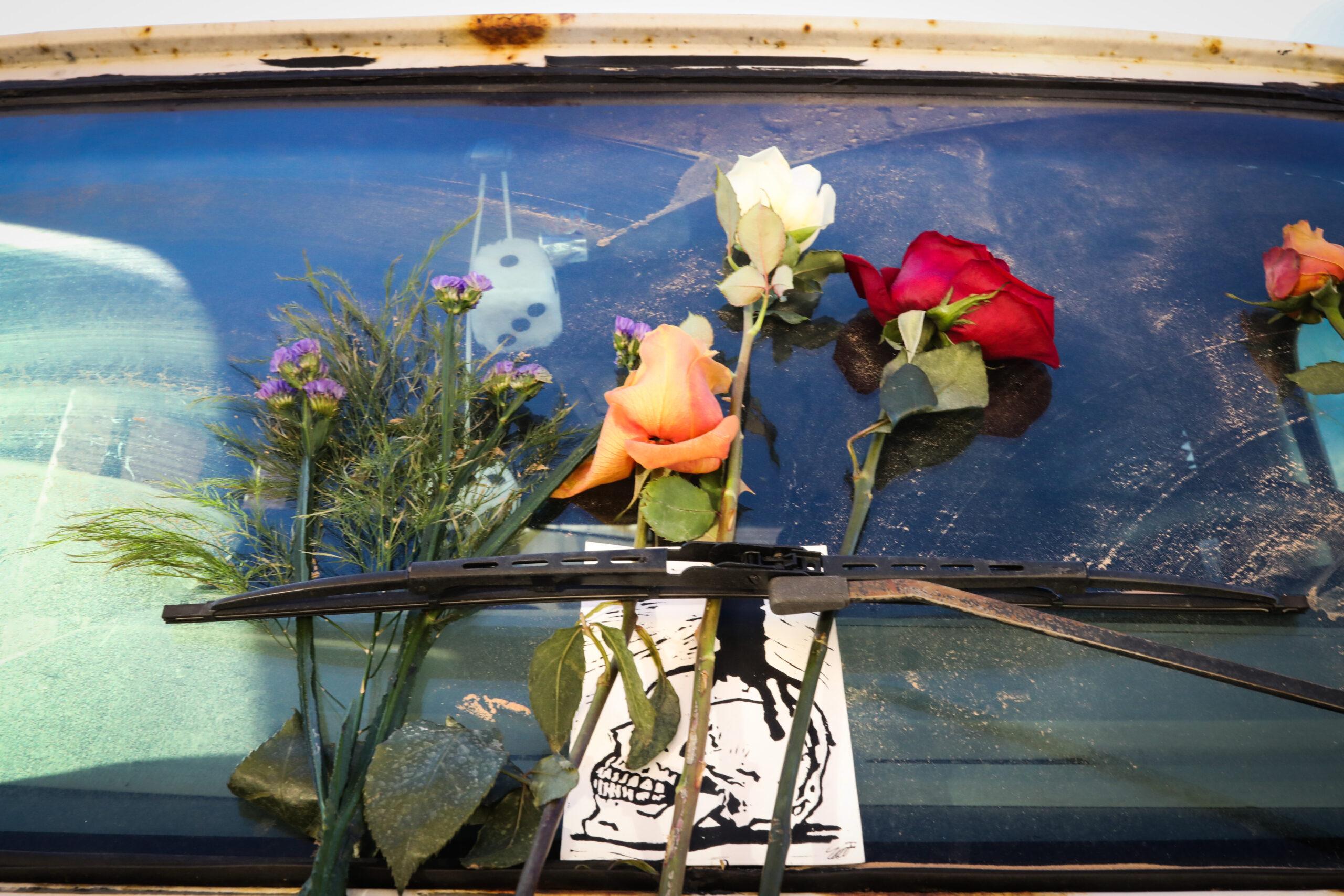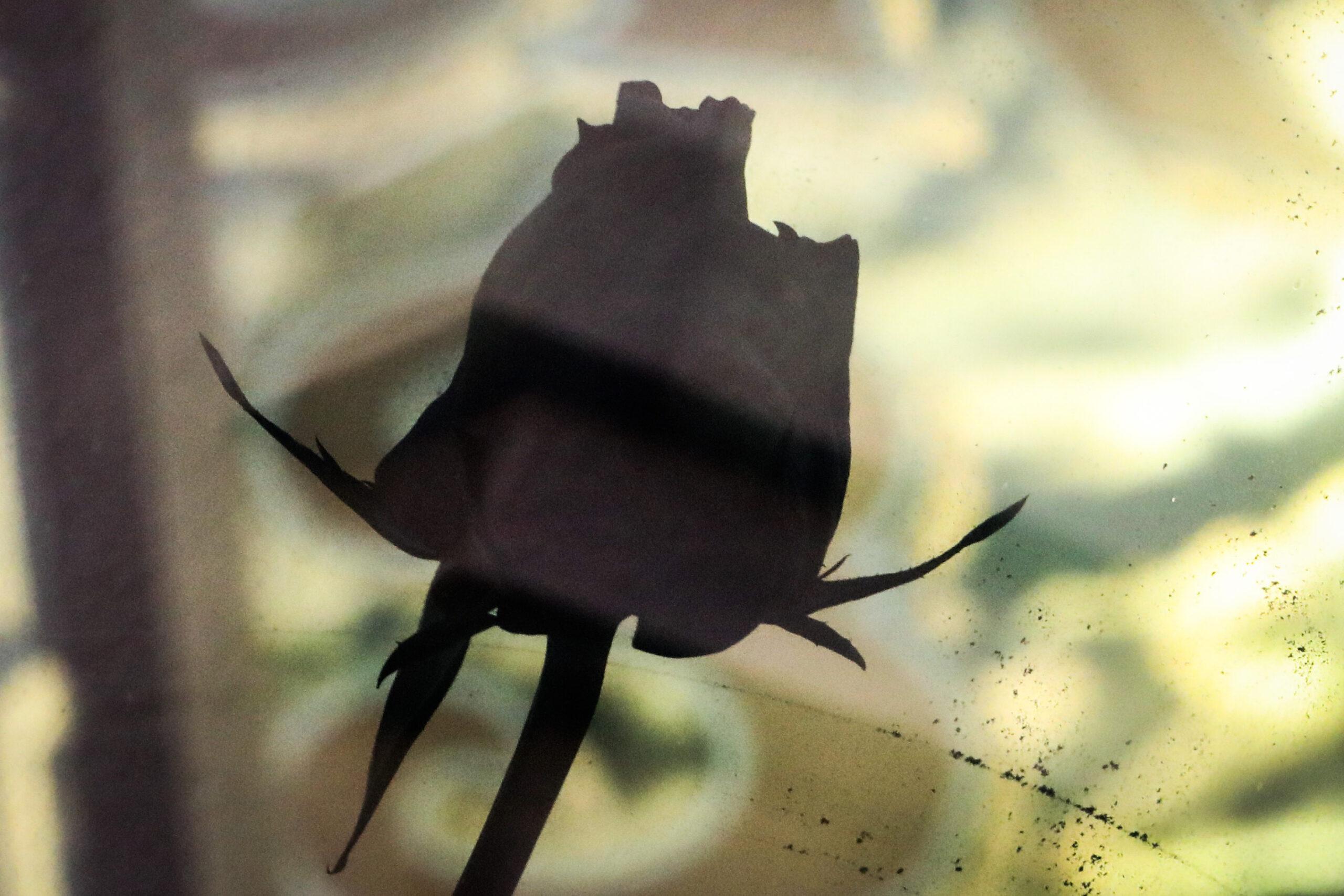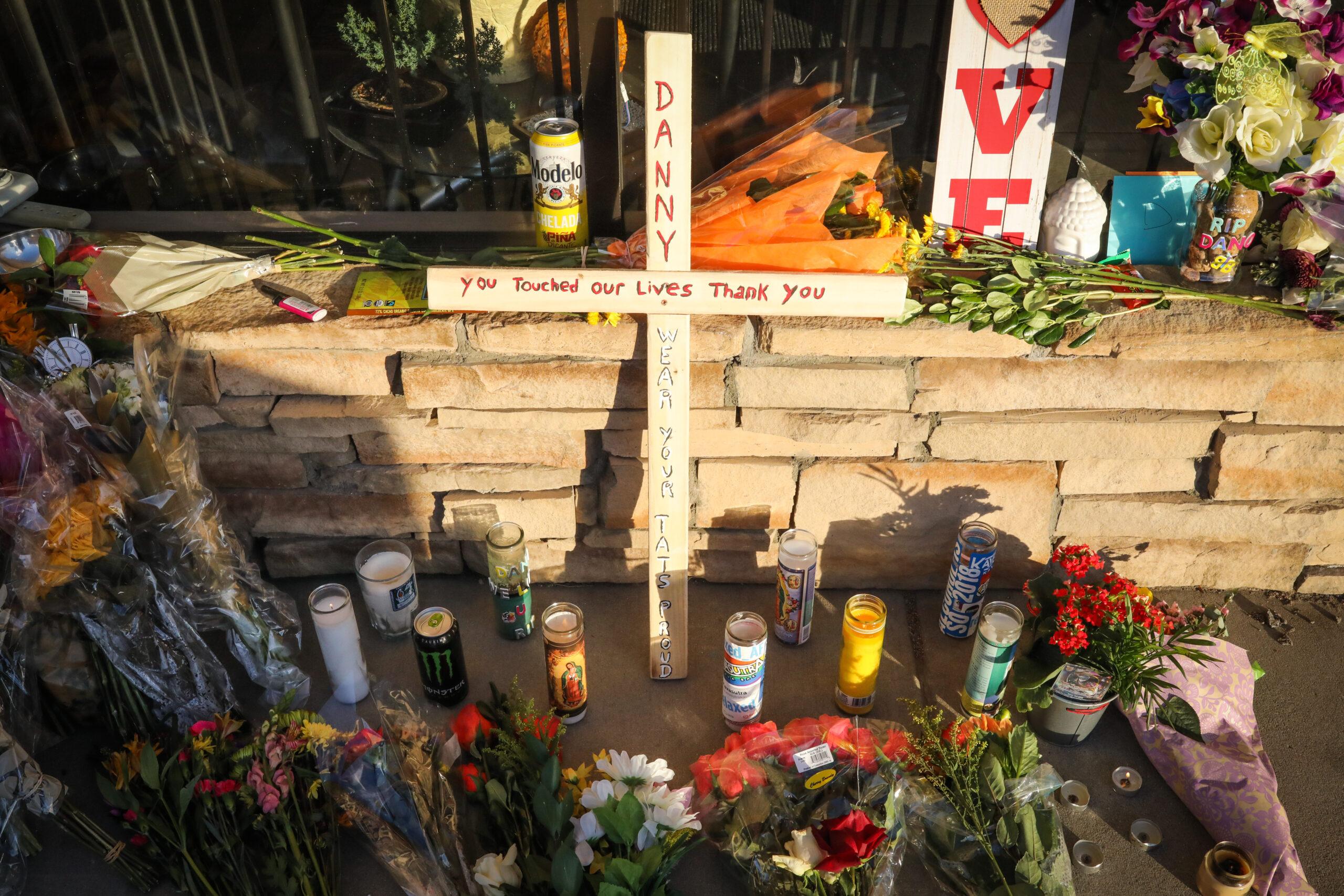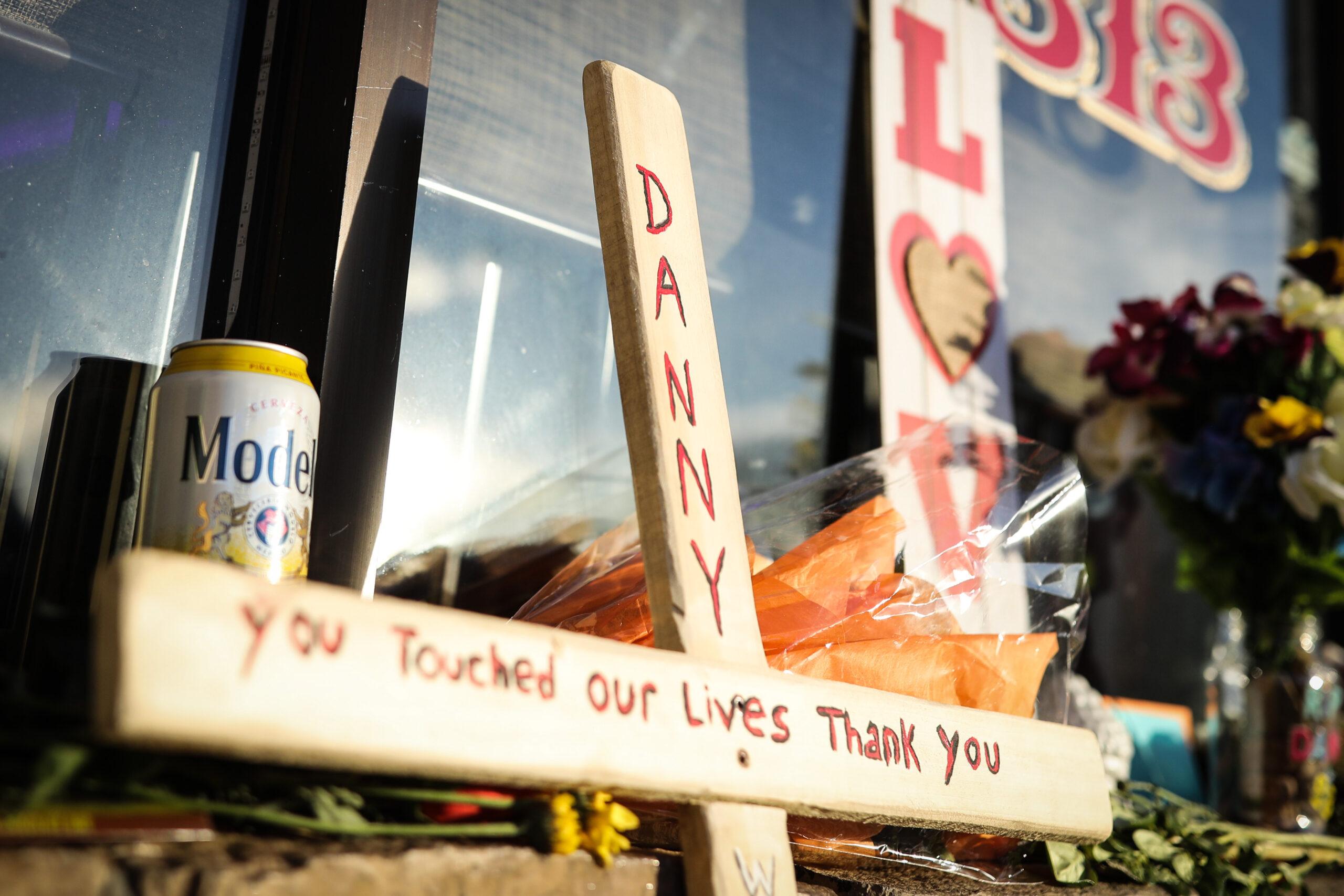Jeremy Costilow heard a knock on his apartment's front door at about 5:30 p.m. Monday. Opening the door, Costilow's girlfriend, Chelsea Matthews, found a large man wearing a headlamp, his hand concealed by a package with Costilow's name on it.
Matthews, who was holding the couple's infant daughter, grew suspicious when the supposed delivery driver asked if Costilow was home. She closed the door as the man pressed closer. Costilow hadn't seen the man, and he brushed the incident aside.
"She just closed the door and locked it. And he walked away," Costilow said on Wednesday.
It was a choice that may have saved the lives of the couple, their child and a guest who was staying at their home. The man at the door, Lyndon James McLeod, was in the middle of a targeted rampage that would leave five people dead in Denver and Lakewood, police said. Costilow now believes he was on the hit list, having previously run a tattoo business with McLeod and one of the shooting victims.
Closing the door wasn't the end of the nightmarish encounter. A few minutes after Matthews turned the gunman away, the group heard a tremendous banging on the door. McLeod had returned with a sledge hammer, Costilow later learned from police.
"He was pounding it, and the door was about to break in. You could see wood coming through the door knob handles," Costilow said. "We said, 'We gotta get out. He's gonna come through and kill us.'"
The couple escaped with their guest and child, slipping through the apartment's rear door into the adjoining space where Costilow operates his tattoo studio, VI Collective. As they hid, the gunman fired a weapon several times. The shots lanced through the locked door that hid Costilow's group.
The gunman soon seemed to give up. As he departed, he torched Costilow's van. Costilow believes McLeod used a hand grenade, which he had seen years earlier in the gunman's extensive armory.
Unbeknown to Costilow and Matthews, McLeod already had murdered two people, and he would kill three more before being fatally shot by a police officer in Lakewood's Belmar shopping district.
Police say that the suspect specifically targeted at least four of the five victims. In recent years, McLeod had written a sprawling series of novels that depicted the graphic murders of characters with the same names as Costilow and other victims, including Alicia Cardenas and Michael Swinyard.
Police have not detailed a motive, but workers in the tattoo business community told us they knew and feared McLeod. For example, Costilow heard of threats against himself relayed through an ex-girlfriend of the gunman.

The gunman was connected to most of the victims through his involvement in a tattoo shop.
He co-founded the business with Costilow; they employed Danny Scofield, who was killed on Monday. After that business failed, the space was leased by Alicia Cardenas, who was killed at her shop on Monday alongside tattooist Alyssa Gunn-Maldonado.
Costilow had tattooed McLeod for several years in the 2000s and eventually partnered with him to launch the tattoo business, All Heart Industry, in 2013. McLeod was the main investor and seemed to get his money from a marijuana growing operation, Costilow said.
The business failed within about a year because McLeod berated and ostracized the tattoo artists who worked there, former employees said.
"He was very loud and in charge, and he wanted everything exactly his way, which I feel like was what led the shop to end," said Randy Mickulesku, who managed the shop. That aggressive style led to confrontations with employees like Scofield, he added.
He was "really aggressive, throwing money in people's faces, arguing with them," said another former employee, James Clarke. "He just was really agro, like a very alpha male kind of militant type of person, and just impossible to work for."
When the business shut down, the gunman "ended up hating everyone that was involved," Clarke said.
Cardenas then leased the space, opening a second location of her Sol Tribe Tattoo & Piercing shop, which later closed.
After the failure of the All Heart shop, McLeod sold his home on Bryant Street in Denver in 2016. The current owner of the home, Gabriel Thorn, said that the gunman had modified the house to include hidden gun safes and an apparent marijuana grow operation in the garage.
"It's a great house, but he put in some weird stuff," Thorn said.
A month after he moved in, police in tactical gear raided the home in search of McLeod and an alleged illicit marijuana grow operation, Thorn said.
Another shooting victim, Michael Swinyard, allegedly grew cannabis illegally at an address in Denver, according to a court indictment. McLeod described a marijuana operation at the same address in a self-published novel featuring a character named after himself.
It is unclear whether the final victim of the rampage, Sarah Steck, was known to the gunman.

After selling his home on Bryant Street, McLeod moved to Las Animas County, where property records show he purchased 35 remote acres in 2015. While there, he seemed to stoke a deep resentment for people he knew.
From 2018 to 2020, McLeod authored a sprawling trilogy of self-published novels under the pen name Roman McClay. (The books were published by a corporation registered in McLeod's name and social media accounts for the book show photographs matching McLeod's description.)
In the novels, a character named Lyndon MacLeod violently murders dozens of people, including ones that share names with his future victims, while dressed in body armor and wielding assault-style weapons.
The books, described as "science fiction" by one reviewer, were available on Amazon Books before the company removed them from its library after the shootings. It is unknown how many people read the books. One review described them as the "novel of our time" for people who subscribe to far-right "red pill" politics.
The writing contains kernels of truth about McLeod's life. McLeod's character is around the same age. And he was estranged from his family, as the real McLeod was, which members confirmed in a statement after the shooting.
In the first book, McLeod's character impersonates a police officer and forces an apartment doorman to lead him to a character named Michael Swinyard in his apartment, where he is shot and killed. Michael Swinyard, 67, was killed at a condo building in McLeod's real-life rampage.
In the second novel, McLeod's character breaks into a tattoo parlor on 6th Street named VI Tattoo and kills a character named Jeremy Costilow. Costilow's real-life business is VI Collective. The novel also mentions the murder of a character named Alicia Cardenas.
The three novels -- which amount to over 2,500 pages in total -- are full of misogynistic, racist and homophobic rants. "The alpha (male) has always borne, shouldered, the heaviest burden of his society, his troop, his tribe. But now he is suffering unduly; and this is why: he cannot win no matter which strategy he uses," one page reads.

Threats from McLeod occasionally made their way to Costilow.
McLeod's ex-girlfriend told Costilow that McLeod was "hungry" to murder him, and that he had been "planning it," Costilow said. The future gunman also left posters for his books at Costilow's shop, he said.
But Costilow did not go to police, saying that he thought McLeod was "all talk" because he threatened people frequently.
It's unclear if other victims reported fears of the gunman to police. Law enforcement investigated the gunman in 2020 and 2021, but neither case resulted in criminal charges, said Denver police chief Paul Pazen. Police representatives have declined to provide further details of those investigations.
In a statement, McLeod's family said they had been estranged from the gunman for years.
"We are devastated by the events in Colorado. Our family has been estranged for a number of years; we lost our son and brother years ago. We mourn the loss of life and injuries caused by this horrendous crime," read the statement relayed through their attorney.
"Anytime someone loses their life to gun violence it is a tragedy. The losses Monday are evidence of the deep need for a system geared toward helping mentally-ill individuals. We express our sincere gratitude to the officers that risked their lives saving others. We pray for peace and comfort for the victims and their families during this tragic and difficult time."
Police in Denver and Lakewood said Wednesday that neither department had attempted to obtain an extreme risk protection order against McLeod. The "red flag" law can allow family members, household members or police to ask a judge to take guns from someone believed to be a danger to themselves or others. There were no records of such a protective order filed against McLeod in Denver, Jefferson and Las Animas counties, according to court staff.
Denver police said two firearms were recovered in connection to the shooting, but they haven't provided more details. Surveillance footage and witnesses suggest he had at least one long gun.
Carolyn Tyler, spokesperson for the Denver District Attorney's Office, said Wednesday that Denver prosecutors did not have any open investigations into McLeod. She said the office's last contact with McLeod was about 10 years ago and that she could not discuss the nature of the contact.
Jefferson County Sheriff's Office spokesperson Karlyn Tilley said gun permit applications are not public record, so the office could not say whether McLeod had been issued a concealed carry permit in the county. Denver police did not immediately respond to a request asking whether McLeod had gun permits issued in the city.
On Wednesday, Costilow and his girlfriend were still sorting out the details of an attack that took five other people's lives and could have ended theirs.
"Look man, I thank God," he said. "I'm a believer."
Esteban L. Hernandez and Paolo Zialcita contributed reporting.
Editor's note: This article was updated because police clarified the sequence of events in the shooting.














